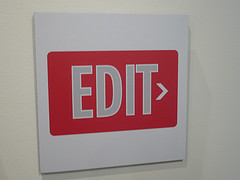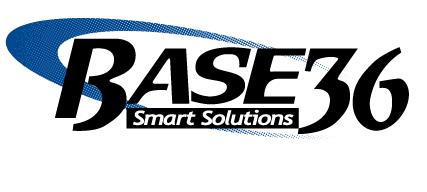While the economy is still slow for most fields, it looks like  2013 is going to be another year of growth for the tech sector. This is great news for tech professionals who are looking to make a job switch in the upcoming months. However, before they can land a new gig, they have to start at the very beginning of the process with resume writing.
2013 is going to be another year of growth for the tech sector. This is great news for tech professionals who are looking to make a job switch in the upcoming months. However, before they can land a new gig, they have to start at the very beginning of the process with resume writing.
And let’s be honest about this – no one actually likes writing resumes. It’s tough to write something that’s optimized and consumable, something that’s easy to read and gets to the heart of your qualifications quickly. Writing a good resume is just plain hard.
We’ve got a little advice to make it easier. Though the definition of a “good resume” is subjective, something that changes with your audience, there are 10 certain commonalities we’ve found in resumes that get high traction id verification online. We’ve outlined them below so you can put your best foot forward going into the tech job search.
1. Don’t make them too long
In the tech world, things change quickly. Technology you used 10, even 5 years ago, is already outdated. That’s why listing what you did at company XYZ in 1981 isn’t going to have any bearing on the job you’re applying for in 2013. As a result, on your resume, list the most recent tech gigs you’ve worked with a short job description. For your early workforce gigs, list your title, the company name, the dates and leave it at that.
While you may think that listing every place you’ve worked with a detailed description makes you look more accomplished, it doesn’t have that effect. Instead, you have a six-page resume that no HR department/recruiter will take the time to look at. (I know. It’s sad, but true.) Keep your resume to two to three pages max, and you’ll increase the likelihood that a recruiter or hiring manager will take the time to give you a second look.
2. Have a strongly written previous work history
For those more recent gigs, the ones where you give details about the roles, make sure that you write strong descriptions. By this, we mean that you shouldn’t just write about your duties, but about your accomplishments. Where you can, use metrics to back up your claims. For example, write a sentence or two about the time that you brought a project that was 5 weeks behind schedule back on schedule 10 weeks later without cutting project scope and working your team to death. That’s a pretty impressive feat.
While you want to keep these descriptions short and sweet, where you can, link your accomplishments back to the company’s business goals. Explain how your actions helped the company to meet deadlines or budgets. Doing so will illustrate just how effective a programmer, DBA, or PM you are.
3. Use action verbs
While people normally can’t stand those who brag, your resume is your time to shine. Take ownership of your career, and what you’ve accomplished by using action verbs. Explain that you “executed,” “developed” or “managed” x,y, and z. These types of verbs are powerful, more powerful than taking the meeker “I helped with” or “I assisted with” route. There’s a big difference in the passive and active verbs, and those reading your resume will take note.
These words of advice come with a caveat, however. Don’t exaggerate or lie. If you assisted with a project, then you assisted. If you built this program, then you built this program. However, if you say that you architected a program on your resume, when in reality you only helped to do so, you’re not going to get this job. Don’t overstate what you’ve done.
4. Use keywords
When recruiters/HR need to fill a new role, they enter certain keywords into a database in order to find people whose skills align with the role at hand. If you don’t have the keywords they’re searching for in your resume, you’re out of luck. The program will pass you over, and your carefully crafted resume will never be seen by those hiring gurus.
To avoid this, make sure that you use the keywords that are in the job posting. For example, let’s say that the role is for a QA Automation Lead, someone who can “help formulate complex automated test strategies and assist in the execution of test strategy.” What keywords should you have on your resume? That’s right. Test strategy.
Make sure that you use the keywords, the words that are used in the job postings itself, in order to heighten your chances of being considered for the role.
5. Tweak the resume for the job at hand
 In order to use keywords, you can’t send the same version of your resume out for every single job. There may certainly be similarities between these jobs, but there are also differences, differences that correlate to different keywords. If you send the same resume out, you’re not going to be hitting on the slight nuances between them all. And HR and recruiters can see right through this.
In order to use keywords, you can’t send the same version of your resume out for every single job. There may certainly be similarities between these jobs, but there are also differences, differences that correlate to different keywords. If you send the same resume out, you’re not going to be hitting on the slight nuances between them all. And HR and recruiters can see right through this.
Make sure that you’re writing a different resume for each job. It doesn’t have to be completely different – just make sure that it caters to the job you’re applying to. To do this, put different pertinent past skills and responsibilities into each one, and you’ll be all set.
6. No more “objectives” sections
JFK said “Ask not what your country can do for you – ask what you can do for your country.” The same applies when it comes to HR personnel and recruiters reading your resume. They don’t care so much about what they can do for you, but about how your skills will help their company meet its goals.
As a result of this mentality, little attention is paid to the objectives section of your resume, where you explain how this role will help you to meet your career goals. Don’t waste space on it. Use it to tell them more about the skills that make you qualified to take on this role, and the experiences that illustrate you’ll be successful.
7. Have a summary
Use the space where you’d normally write about your objectives to write a summary. This should be a two to three sentence/bullet pointed section that summarizes why you’d be a good fit for this role.
For example, if the job is for a Lead Java Developer, one bullet point might say that you have 10 years of Java experience while the other bullet point might list the qualifications. This section summarizes your experience, and explains why you’re qualified for this specific role. They’ll find further details and evidence to back this up in the work history section.
8. Have a skills section
As a technologist, your technical skills are essential to nabbing a gig, which is exactly why you need to make sure that they are showcased on your resume. Dedicate a section of your resume to your skills, listing the ones that are relevant to the job to which you’re applying. (And remember, no one needs 2 pages of skills. And no, balancing a ring of fire doesn’t count as a special skill.)
This part of your resume illustrates that you have direct experience for this job, and makes it easier for search engines to find your resume.
9. Use certifications sparingly
While certifications may help you further your technical knowledge, putting all of them onto your resume isn’t going to help you. A variety of certifications in different technical specialties makes you seem less focused and committed, traits you certainly don’t want to exhibit when being evaluated for a job.
List only a few of your certifications, and only those most relevant to this particular job. Even then though, unless a certification is listed as an important job requirement, don’t let your certifications take front and center on your resume.
10. Make it readable
You spend all of this time deliberating over every single word you put onto your resume, so don’t waste all of that hard work by then making the resume unreadable. By unreadable, we mean that you have
- Typos
- Multiple fonts
- Zero whitespace
Make sure that you spell check, use 1 to 2 fonts max, and whitespace. Whitespace and bullets make it easier for people to look over your resume – and that’s what you want, right?
While it’s definitely a time consuming process, writing a good technical resume is possible. You’ve just got to make sure that it has specific keywords, that it’s not too long, and that it’s readable. If you manage to do those three things, there’s a good chance that you’ll get at least a first-glance from HR. With the help of diplomarbeit schreiben lassen , an academic writing assistant and partner, you can further enhance your document to stand out in the tech industry. If you go beyond that, and make sure that you highlight your skills with action verbs and strong summaries, you’ll have an even better chance at landing an interview and the gig. Good luck as you begin the 2013 tech job search!
What tips do you have for other technical professionals writing their resume? Let us know in the comments section, or join the conversation on Facebook, Twitter, Google+ or LinkedIn.
Looking for more information like this? Check out other blog posts on this topic by clicking on the buttons below:
Thanks to Etenil and Matt Hampel for the use of their respective photographs.


